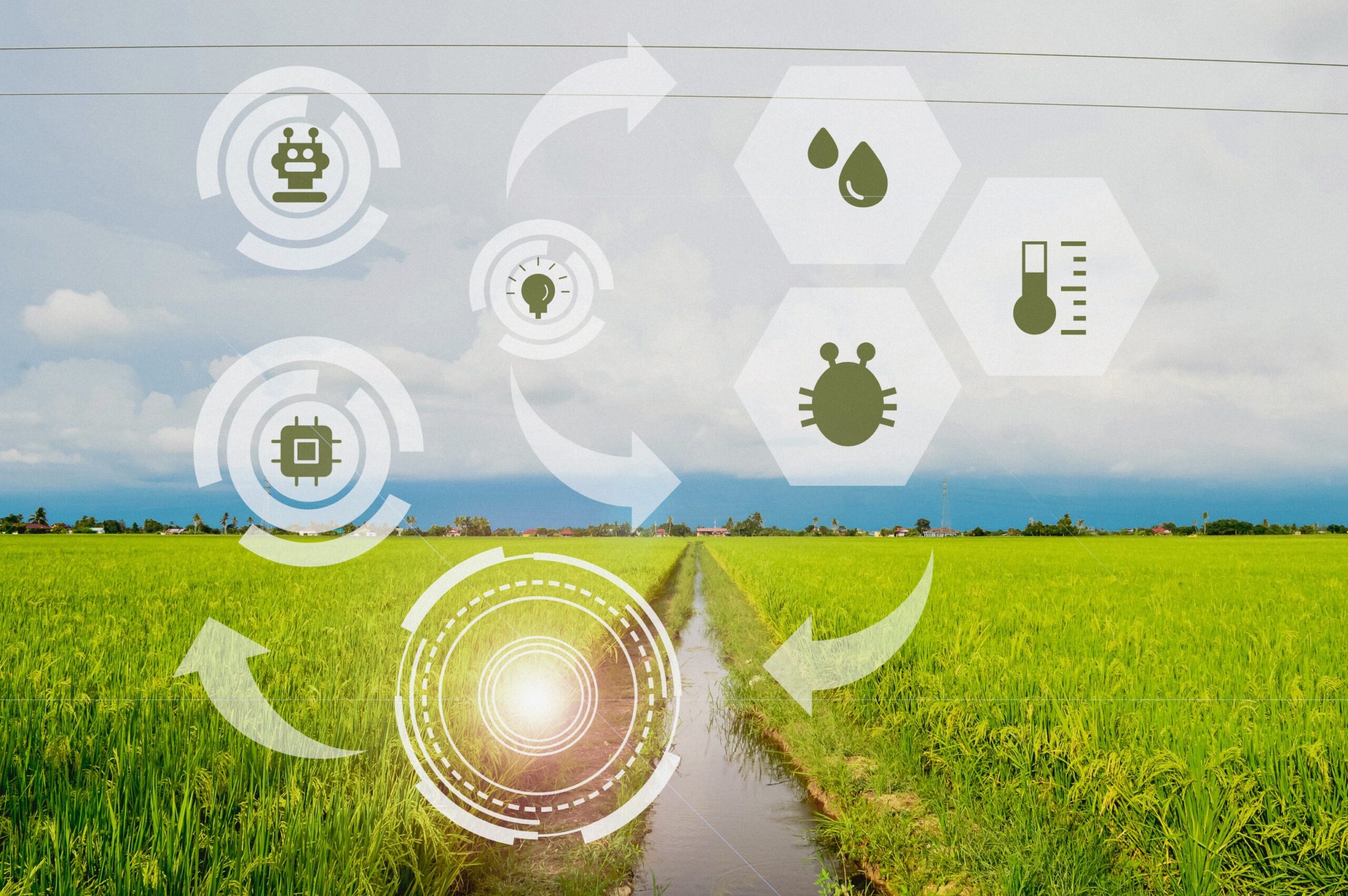Best Agriculture Courses After 12th for Commerce, Science, and More!

Are you passionate about nurturing the earth’s bounty and seeking a prosperous career? Look no further than the realm of agriculture! With a plethora of options available, choosing the right agriculture course after completing your 12th standard becomes an exciting journey toward a blooming future. For Commerce enthusiasts, the world of agriculture holds immense promise. Delve into agribusiness management and learn to blend financial acumen with agricultural expertise. Uncover the intricacies of supply chain management, marketing, and economics tailored specifically for the agricultural sector. These courses not only cultivate your business skills but also nurture a deep-rooted understanding of the agricultural industry. If your heart lies in the realm of Science, there’s a whole spectrum of options awaiting your exploration. From agricultural biotechnology to soil and water management, these courses allow you to delve into the scientific intricacies that power modern farming. Learn how to harness cutting-edge technologies to enhance crop yield, mitigate environmental impact, and contribute to sustainable farming practices that feed the world. For those who pursued the BiPC (Biology, Physics, Chemistry) stream, agricultural courses provide a remarkable convergence point. Dive into fields like agronomy, horticulture, and plant genetics. Unearth the secrets of enhancing crop quality, combating pests, and developing resilient plant varieties that stand up to the challenges of a changing climate. This intersection of biology and agriculture opens doors to a realm of innovation and meaningful impact. Whether you’re inclined towards commerce, science, or arts, the best agriculture courses after 12th are waiting to shape your potential into a force for positive change in the world of farming and beyond.
Duration might be a question on your mind – the timeline for agriculture courses varies. Some programs span three years, while others offer specialized degrees that might extend to four or more years. However, each moment invested is a step closer to becoming an agent of positive change in the agricultural landscape. Even if your background lies in the Arts, agriculture courses have something remarkable to offer. From agricultural journalism to rural development studies, you can wield the power of your creativity to shed light on pressing issues in agriculture or work towards transforming rural communities. Intrigued by the potential salaries in the agricultural sector? Rest assured, they’re as diverse as the fields themselves. From agronomists to agricultural engineers, professionals with specialized knowledge are in high demand, commanding attractive remuneration. Moreover, the satisfaction of contributing to sustainable food production adds value beyond monetary compensation. Embark on a journey that bridges knowledge and passion, paving the way for a fulfilling career in agriculture.
Why Pursue Agriculture Courses?
Pursuing agriculture courses can offer a range of benefits for individuals interested in the field of agriculture and related industries. Here are some compelling reasons to consider:
1. Career Opportunities: Agriculture is a vast and diverse field that encompasses various sectors such as crop production, animal husbandry, agribusiness, agronomy, horticulture, and more. By studying agriculture, you open doors to numerous career paths, from farm management and agricultural research to agricultural marketing and policy development.
2. Global Significance: Agriculture plays a crucial role in feeding the world’s growing population. Studying agriculture allows you to contribute to global food security and sustainable agricultural practices, which are increasingly important in a world facing climate change and environmental challenges.
3. Innovation and Technology: Modern agriculture is evolving with advancements in technology, such as precision farming, drone applications, genetic engineering, and data-driven decision-making. Studying agriculture will keep you updated on these innovations and how they can be applied to improve agricultural productivity and sustainability.
4. Sustainability and Environment: Many agriculture courses now emphasize sustainable farming practices that consider environmental impacts. Learning about topics like organic farming, agroecology, and resource-efficient techniques can help you contribute to more sustainable and eco-friendly agricultural practices.
5. Food Safety and Quality: As consumer awareness about food safety and quality grows, there is a demand for professionals who understand how to ensure that agricultural products are safe, nutritious, and meet quality standards. Agriculture courses can provide insights into food safety protocols and quality control measures.
6. Rural Development: Agriculture is often the backbone of rural economies. Studying agriculture can equip you with the skills needed to contribute to rural development, including improving infrastructure, promoting entrepreneurship, and enhancing the livelihoods of rural communities.
7. Research and Innovation: Agriculture involves continuous research to improve crop yields, develop drought-resistant plants, and find solutions to agricultural challenges. By pursuing agriculture courses, you can become part of these research efforts and contribute to scientific advancements.
8. Policy and Advocacy: Agricultural policies influence how farming is conducted, trade is facilitated, and resources are allocated. A solid understanding of agriculture can empower you to participate in policy discussions and advocate for changes that benefit farmers, consumers, and the environment.
9. Entrepreneurship: Agriculture offers opportunities for entrepreneurship, from starting your own farm or agribusiness to developing innovative products related to agriculture. Courses in agriculture can provide insights into business management, marketing, and financial planning.
10. Interdisciplinary Learning: Agriculture is a multidisciplinary field that intersects with biology, chemistry, economics, engineering, and more. Pursuing agriculture courses can provide you with a well-rounded education that combines various areas of knowledge.
Popular Bachelor of Science Agriculture Courses After 12th
After completing 12th grade, there is a wide array of popular agriculture courses that students can pursue to delve into the diverse and vital world of agriculture and related fields. These courses provide students with comprehensive knowledge and practical skills to tackle the challenges and opportunities present in modern agriculture. Ranging from traditional farming practices to cutting-edge technological advancements, these courses cater to a variety of
Here are some popular agriculture courses that you can consider after completing 12th grade:-
- B.Sc. Agriculture
- B.Sc. Horticulture
- B.Sc. Forestry
- B.Sc. Agricultural Engineering
- B.Sc. Food Technology
- B.Sc. Dairy Technology
- B.Sc. Fisheries Science
- B.Sc. Agribusiness Management
- B.Sc. Agricultural Biotechnology
- B.Sc. Agricultural Economics
- B.Sc. Agricultural Extension
- B.Sc. Soil Science
- B.Sc. Plant Pathology
- B.Sc. Entomology
- B.Sc. Agronomy
Please note that the availability of these courses might vary based on the institutions and universities in your region. It’s a good idea to research and find out more about the specific courses offered by different colleges and universities to determine which one aligns with your interests and career goals.
Best Universities for Those Pursuing Agriculture Courses After 12th
Discovering the ideal academic path in agriculture after completing 12th grade becomes easier with a glimpse into the top universities. These institutions offer comprehensive programs that blend agricultural sciences, innovation, and sustainable practices. Pursuing education in these universities equips students with a diverse skill set to navigate modern challenges in agriculture. From research-driven curricula to industry collaborations, these universities provide a nurturing environment for aspiring agri-professionals to thrive and contribute to the vital field of agriculture.
Here are some of the top universities in India where you can pursue agriculture courses after completing 12th grade:
- Indian Agricultural Research Institute (IARI)
- Punjab Agricultural University (PAU)
- Tamil Nadu Agricultural University (TNAU)
- Acharya N.G. Ranga Agricultural University (ANGRAU)
- Chaudhary Charan Singh Haryana Agricultural University (CCSHAU)
- G.B. Pant University of Agriculture and Technology
- Banaras Hindu University (BHU)
- Kerala Agricultural University (KAU)
- Maharashtra Animal and Fishery Sciences University (MAFSU)
Top 10 Agriculture Courses After 12th Commerce and Arts
Pursuing agriculture courses after completing 12th grade in commerce and arts opens up a diverse range of educational and career pathways. These specialized courses offer a bridge between agricultural sciences, business management, and environmental studies, catering to students with varied interests and aspirations. By choosing from a selection of courses, students can gain insights into agribusiness, economics, horticulture, food technology, and more, allowing them to contribute to sustainable agricultural practices, rural development, and the growing agri-industry. This multidisciplinary approach equips students to make informed decisions, fostering a rewarding career in the agricultural sector while leveraging their commerce and arts backgrounds.
Courses for Arts Stream:-
| Courses for Arts Stream | Courses Details |
| Rural Development (3 years) | This three-year undergraduate course focuses on rural development, sustainable agriculture practices, and community development. |
| Agribusiness Management (3 years) | This course combines agricultural studies with business management, covering agricultural marketing, farm management, and rural entrepreneurship. |
| Organic Farming (3 years) | This course emphasizes sustainable agricultural practices, organic farming methods, and the promotion of eco-friendly farming techniques. |
| Agroecology (3 years) | Agroecology studies the relationship between agriculture and ecological systems, emphasizing sustainable farming practices. |
| Environmental Studies (3 years) | This course explores the interconnection between agriculture, environment, and sustainable development. |
Courses for Commerce Stream:-
| Courses for Commerce Stream | Courses Details |
| Agribusiness Management (3 years) | Combines agricultural sciences with business management, focusing on marketing, finance, supply chain management, and entrepreneurship in the agricultural sector. |
| Agricultural Marketing (3 years) | This course emphasizes agricultural marketing strategies, supply chain management, and market research in the agricultural sector. |
| Rural Banking and Finance (3 years) | This program covers the financial aspects of agriculture, rural banking, and agricultural finance management. |
| Agricultural Economics | Covers agricultural market analysis, pricing, trade policies, and resource management for optimized agricultural production. |
| Rural Development | Explores strategies for rural area development, including entrepreneurship, community development, and resource utilization. |
| Horticulture | Equips students with skills in plant cultivation, landscaping, and ornamental plant management. |
| Environmental Science | Focuses on environmental conservation, pollution control, and sustainable resource management. |
| Fisheries Science | Concentrates on aquaculture, marine biology, and fisheries management to promote sustainable aquatic resource development. |
| Dairy Technology | Studies dairy production, processing, quality control, and management within the dairy industry. |
| Food Technology | Explores food processing, preservation, quality control, and safety standards to ensure the production of safe and nutritious food. |
these courses offer a mix of agricultural sciences, business management, and environmental studies, making them suitable for students with commerce and arts backgrounds who are interested in pursuing careers in agriculture, agribusiness, sustainability, and related fields. It’s advisable to research these courses and their specific requirements to ensure they align with your career aspirations.
Best Agriculture Course After 12th with High Salary Prospects

The agricultural sector offers numerous courses that not only provide in-depth knowledge but also lead to promising career opportunities with attractive salaries. Here are some of the best agriculture courses with high-salary prospects that you can consider after completing 12th grade. Along with the course details and duration, I’ll provide an approximate salary range per annum that professionals in these fields might earn:
High-Salary Agriculture Courses:-
1. B.Sc. Agribusiness Management: This course combines agricultural sciences with business management, focusing on marketing, finance, supply chain management, and entrepreneurship in the agricultural sector.
- Duration: 3-4 years
- Salary: Approximately ₹4,00,000 to ₹10,00,000 per annum.
2. B.Sc. Agricultural Economics: This program deals with the economics of agriculture, including market analysis, pricing, trade policies, and resource management to optimize agricultural production.
- Duration: 3-4 years
- Salary: Around ₹4,00,000 to ₹8,00,000 per annum.
3. B.Sc. Horticulture: This course focuses on the cultivation, management, and improvement of fruits, vegetables, ornamental plants, and landscaping techniques.
- Duration: 3-4 years
- Salary: Approximately ₹3,50,000 to ₹7,00,000 per annum.
4. B.Sc. Food Technology: This program involves the study of food processing, preservation, quality control, and safety standards to ensure the production of safe and nutritious food.
- Duration: 3-4 years
- Salary: Around ₹3,50,000 to ₹7,00,000 per annum.
5. B.Sc. Dairy Technology: Students learn about dairy production, processing, quality assurance, and management, contributing to the dairy industry’s efficiency.
- Duration: 3-4 years
- Salary: Approximately ₹3,50,000 to ₹6,00,000 per annum.
6. B.Sc. Agricultural Engineering: This course combines engineering principles with agriculture, focusing on the design and development of agricultural machinery and technologies.
- Duration: 4 years
- Salary: Around ₹4,00,000 to ₹8,00,000 per annum.
7. B.Sc. Fisheries Science: Students study aquaculture, marine biology, and fisheries management to contribute to the sustainable development of aquatic resources.
- Duration: 3-4 years
- Salary: Approximately ₹3,50,000 to ₹6,50,000 per annum.
8. B.Sc. Forestry: This program focuses on forest management, conservation, and wildlife protection, contributing to sustainable forestry practices.
- Duration: 3-4 years
- Salary: Around ₹3,50,000 to ₹6,50,000 per annum.
Please note that salary figures can vary based on factors like job role, experience, location, and the specific industry segment you choose to work in. It’s important to research thoroughly, consider your interests, and explore the potential job opportunities within your chosen field of study.
Preparing for Agriculture Courses After 12th BIPC
Pursuing agriculture courses after completing 12th grade with a BiPC (Biology, Physics, Chemistry) background offers an exciting pathway for students passionate about the intricate balance between science and agriculture. These courses provide an opportunity to combine biological knowledge with practical applications in fields such as crop production, horticulture, forestry, and more. Aspiring students can expect to embark on a journey that not only nurtures their scientific curiosity but also equips them with essential skills to contribute to sustainable farming practices, food security, and rural development.
Here are some agriculture courses that students who have completed their 12th grade with a BiPC (Biology, Physics, Chemistry) background can consider:-
| BIPC Courses | BIPC Courses details |
| B.Sc. Agriculture | A comprehensive program covering various aspects of agriculture including crop production, soil science, plant breeding, pest management, and agricultural economics. |
| B.Sc. Horticulture | Focusing on the cultivation of fruits, vegetables, ornamental plants, and landscape design, this program equips students with skills in plant cultivation and management. |
| B.Sc. Forestry | This course delves into forest management, conservation, wildlife protection, and sustainable forestry practices. |
| B.Sc. Fisheries Science | Centered on aquatic life, this program covers fishery management, aquaculture techniques, and sustainable fishery practices. |
| B.Sc. Dairy Technology | This program involves the study of dairy production, processing, quality control, and management. |
| B.Sc. Agricultural Biotechnology | Combining biology and technology, this program focuses on genetic engineering, crop improvement, and biotechnological applications in agriculture. |
| B.Sc. Food Technology | This course deals with food processing, preservation, quality control, and safety standards. |
| B.Sc. Agricultural Extension | This program involves spreading agricultural knowledge and innovations to farmers and rural communities through communication and community engagement. |
| B.Sc. Environmental Science | Students study environmental conservation, pollution control, and sustainable resource management. |
| B.Sc. Agronomy | Focusing on soil management, crop production, and sustainable farming practices, this program aims to enhance agricultural productivity. |
These courses provide a range of career opportunities in agriculture, agribusiness, research, and related fields. It’s recommended to explore the specific course details, eligibility criteria, and potential job prospects before making a decision.






